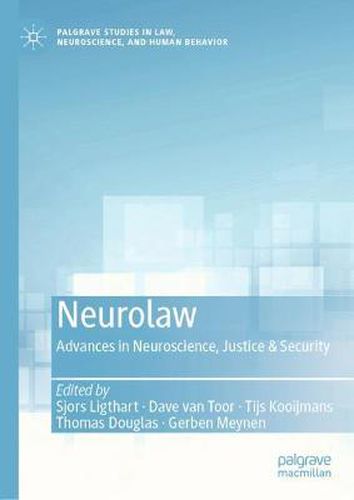Readings Newsletter
Become a Readings Member to make your shopping experience even easier.
Sign in or sign up for free!
You’re not far away from qualifying for FREE standard shipping within Australia
You’ve qualified for FREE standard shipping within Australia
The cart is loading…






This title is printed to order. This book may have been self-published. If so, we cannot guarantee the quality of the content. In the main most books will have gone through the editing process however some may not. We therefore suggest that you be aware of this before ordering this book. If in doubt check either the author or publisher’s details as we are unable to accept any returns unless they are faulty. Please contact us if you have any questions.
This edited book provides an in-depth examination of the implications of neuroscience for the criminal justice system. It draws together experts from across law, neuroscience, medicine, psychology, criminology, and ethics, and offers an important contribution to current debates at the intersection of these fields. It examines how neuroscience might contribute to fair and more effective criminal justice systems, and how neuroscientific insights and information can be integrated into criminal law in a way that respects fundamental rights and moral values.
The book’s first part approaches these questions from a legal perspective, followed by ethical accounts in part two. Its authors address a wide range of topics and approaches: some more theoretical, like those regarding the foundations of punishment; others are more practical, like those concerning the use of brain scans in the courtroom. Together, they illustrate the thoroughly interdisciplinary nature of the debate, in which science, law and ethics are closely intertwined. It will appeal in particular to students and scholars of law, neuroscience, criminology, socio-legal studies and philosophy.
Chapter 8 is available open access under a Creative Commons Attribution 4.0 International License via link.springer.com.
$9.00 standard shipping within Australia
FREE standard shipping within Australia for orders over $100.00
Express & International shipping calculated at checkout
This title is printed to order. This book may have been self-published. If so, we cannot guarantee the quality of the content. In the main most books will have gone through the editing process however some may not. We therefore suggest that you be aware of this before ordering this book. If in doubt check either the author or publisher’s details as we are unable to accept any returns unless they are faulty. Please contact us if you have any questions.
This edited book provides an in-depth examination of the implications of neuroscience for the criminal justice system. It draws together experts from across law, neuroscience, medicine, psychology, criminology, and ethics, and offers an important contribution to current debates at the intersection of these fields. It examines how neuroscience might contribute to fair and more effective criminal justice systems, and how neuroscientific insights and information can be integrated into criminal law in a way that respects fundamental rights and moral values.
The book’s first part approaches these questions from a legal perspective, followed by ethical accounts in part two. Its authors address a wide range of topics and approaches: some more theoretical, like those regarding the foundations of punishment; others are more practical, like those concerning the use of brain scans in the courtroom. Together, they illustrate the thoroughly interdisciplinary nature of the debate, in which science, law and ethics are closely intertwined. It will appeal in particular to students and scholars of law, neuroscience, criminology, socio-legal studies and philosophy.
Chapter 8 is available open access under a Creative Commons Attribution 4.0 International License via link.springer.com.